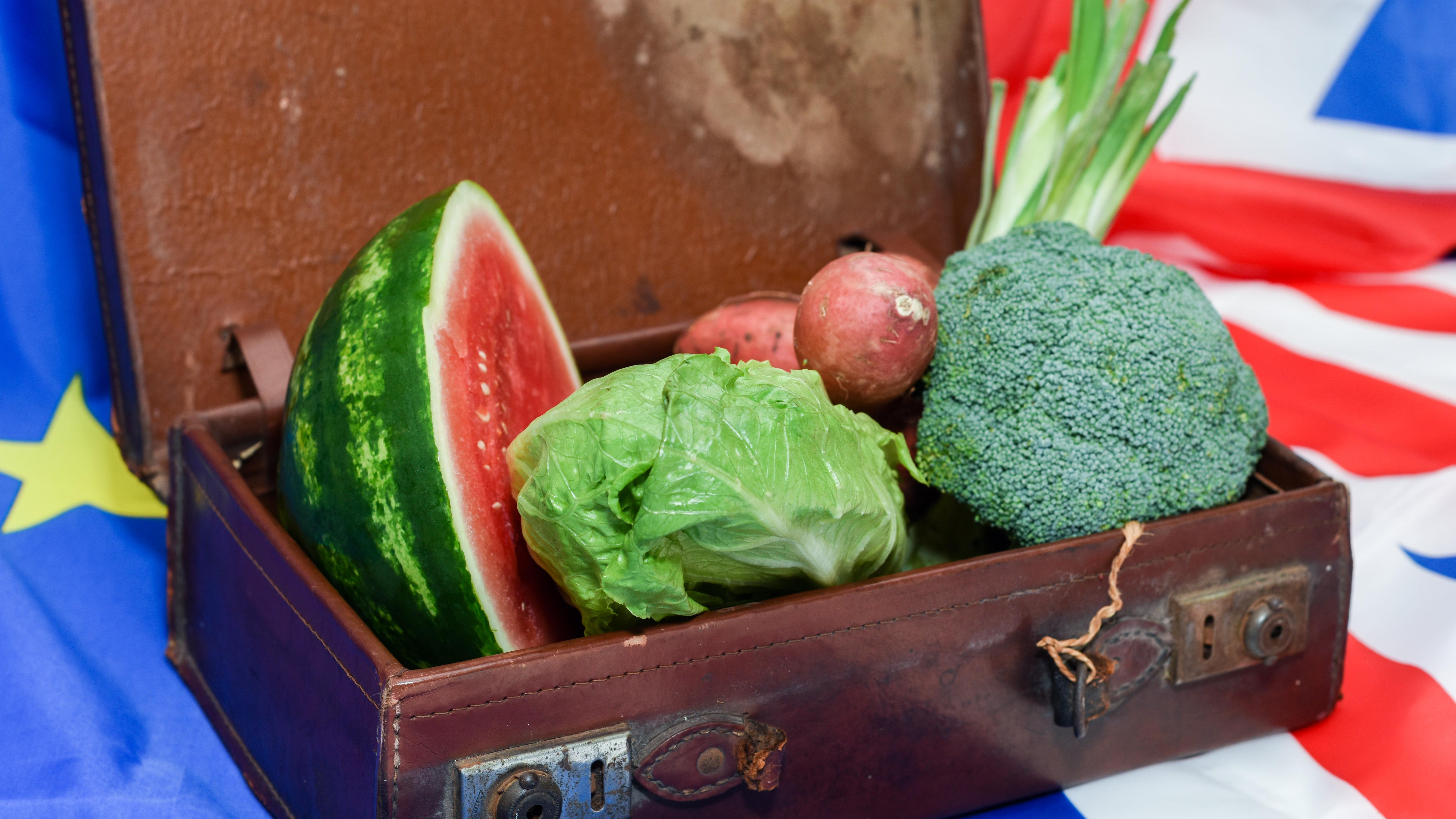Don't Forget To Declare These Foods To Customs
We don't want to see you fined $2,000 for a forgotten Subway sandwich.
Subway, for all its flaws, is generally reliable for at least one reason: it's cheap as hell. You can get the sub of the day, load it with all the stuff you like, and walk away with a pretty hearty lunch for less than $5. So it's extra important that you don't do anything with that sandwich that will cost you much, much more.
CBS reports that Jessica Lee, an Australian woman who forgot to declare her Subway sandwich on an international flight, had to pay dearly for the mistake. Australian airport officials ended up fining her $1,840 for the oversight. Lucky for Lee, Subway caught wind of the story and ended up sending her a gift card for the amount she spent, but we can't all expect to get that kind of treatment. Let's all use this as a teaching moment before hopping on our next international flight. None of us deserve to get burned by a rogue snack in our bags.
Why you must declare certain items at customs
Adding yet another step to the hassle of air travel may seem like an unnecessary nuisance, but there's actually a good reason for the declaration process. According to U.S. Customs and Border Protection, plant pests and foreign animal diseases potentially living in certain agriculture and food products could be devastating for another country's environment. The unfamiliar substances can sicken animal populations, kill off plant varieties, and otherwise harm the crops and livestock that farmers rely on for their livelihoods (and consumers depend on for food).
When you declare an item, that doesn't necessarily mean it will be taken away from you. It just means that a specialist in customs will examine the item to make sure it's free of any of those pesky pests and diseases. If Lee had in fact declared her Subway sandwich, one look at the prepared food item (most of which are A-OK to travel) would likely have determined she could keep on chomping that thing mid-flight.
These foods need to be declared at customs
You can always ask your friendly neighbor customs expert, because the rules may vary slightly from country to country, but here are some general guidelines for what to declare if you're flying to or from the United States:
- Fruits, vegetables, and plants: You definitely need to declare these to be inspected, and it's important to note that if you're bringing a plant for the purposes of growing or propagating you will need a foreign phytosanitary certificate from the USDA/APHIS Plant Protection and Quarantine Permit Unit in advance.
- Meat and animal products and byproducts: Whether or not you can bring meat products through customs will depend on the disease status of the country you're visiting—fresh, dried, and canned meats are often prohibited because of ongoing threats of foot-and-mouth disease and mad cow disease. You'll absolutely want to declare these items, but it's better still to check on the most up-to-date restrictions before even attempting to bring any meat into another country.
- Milk, dairy, and egg products: For similar reasons to the meat products, most milk, dairy, and egg products will be flagged and discarded at customs. The only exceptions here are liquid milks in small quantities for infants, small quantities of dried milk products, and commercially labeled, shelf-stable, unopened fully prepared and sealed food items.
If you're ever unsure of what can or cannot make it through customs, check out Don't Pack a Pest for a full breakdown of food and nonfood items allowed for air travel. And when in doubt, just declare, declare, declare, so that you don't end up paying thousands of dollars for a cheap airport snack.
